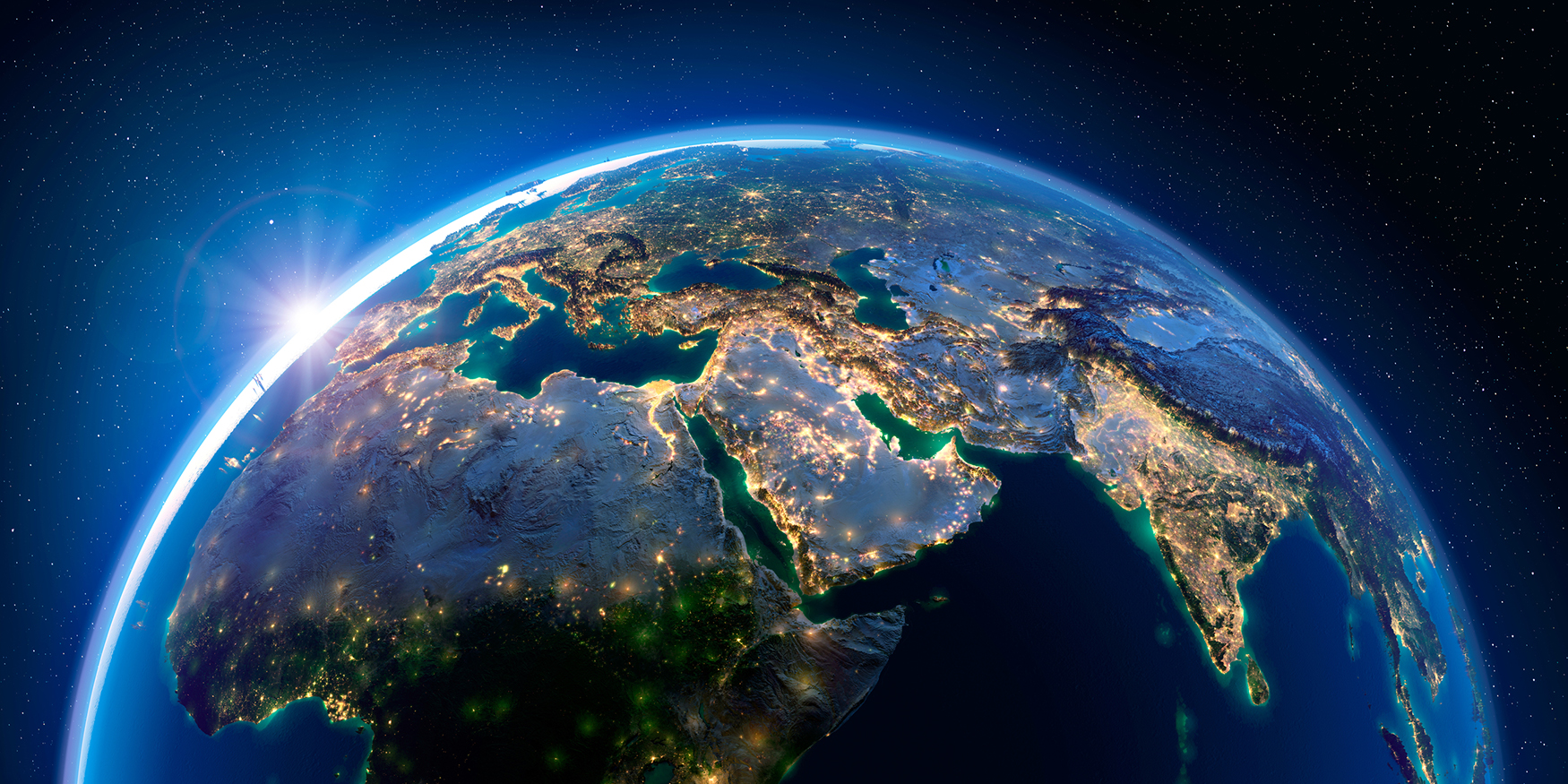Stability has become the primary concern for Arab ruling regimes as, throughout 2021, challenges mounted. Tensions increased between ruling partners, be they civilians and military or secular and Islamist. Armed militias intensified their activities, creating obstacles to holding elections in Libya and spreading instability to Yemen’s neighboring countries. External interference has increased in Arab domestic affairs, while US withdrawal from Iraq and Afghanistan opened a path to new actors, that now seek to fill the void left by the US.
Political elites have therefore moved to prevent further deterioration, through the adoption of various measures, including power-sharing deals, and improving the quality of essential services such as healthcare and electric power. Arab states moved to support their Arab neighbors, through proclaiming support for their water rights in transboundary disputes, increasing coordination between central Arab powers such as Egypt and the GCC, and overcoming divisions and increasing cooperation between GCC member states. Efforts have been made to decrease regional tensions, including those between Saudi Arabia, the UAE, Iran, and Turkey. Arab states have worked to create balanced relationships with the various global powers active in the region, while international pressure increased on Arab countries, such as Tunisia and Sudan to overcome crises between governing partners.
The efforts by Arab states to establish stability in the region, whether alone or in partnership with other Arab countries or actors from outside the region, has been motivated by the understanding that instability is contagious, and can move not only from one country to another within the same region, but can also extend to other regions as well. These efforts took many forms in the last quarter of 2021, including:
Ruling elites and the need for power sharing: Stability in the region can never be achieved fully unless power is shared between the various political forces driving for political reform. This has been a challenge in Sudan, where differences have escalated between the civilian and military components of the ruling coalition. However, the head of the presidential council Abdelfattah Burhan has affirmed that the political deal with the Prime Minister Abdallah Hamdouk is the way to ensure stability and security and an end to the transitional period. Efforts continue into the new year to reach an understanding, with growing international and regional pressures to bring the crisis to an end.
Inter-Arab support: Some Arab countries have moved to extend practical support to neighbors in crisis. This support included medical supplies for COVID-19 relief efforts, whereby for example the UAE, Egypt, and Saudi Arabia sent aid to Syria, Iraq, Sudan, and Tunisia. Egypt is also taking part in relieving the acute electricity shortage in Lebanon by providing supplies of gas to power its failing electricity grid. President Abdelfattah El Sisi moreover instructed all ministries to provide any assistance possible to relieve Lebanon’s current difficulties. Lebanon had reached a deal with Egypt last September to import natural gas from Egypt through a pipeline that extends through Jordan and Syria, with the expectation that Egypt will begin exporting the gas in early 2022.
Increased intra-Arab Coordination: Pivotal Arab countries have come to perceive the importance of coordinating efforts to enhance regional stability. This was reflected in closer coordination between GCC and Egypt, announced in a joint meeting of these countries’ foreign ministers on the 13th of December 2021, where they affirmed the importance of coordinating on all regional and global affairs. They also affirmed the importance of reaching strategic cooperation between Egypt and the GCC on the institutional level in a manner that serves to maintain regional peace and stability
Following a separate meeting between Saudi and Egyptian foreign ministers, a press conference was held to reveal that there is clear coordination on several regional issues including the Iranian nuclear program, the role of Iran in de-stabilizing the region through its support of militias, the settlement of the Yemeni crisis through negotiations. Other topics discussed included the Libyan elections, the expulsion of mercenary groups from Libyan territory, Saudi support for both Egypt and Sudan regarding the Grand Ethiopian Renaissance Dam (GERD) as Egypt and Sudan’s water security is considered part of Arab national security. Finally, they also discussed the importance of joint military exercises between the GCC and Egypt to maintain peace and stability across the region.
The Saudi Crown Prince, Mohamed Bin Salman, also made a tour of the GCC countries, in advance of the GCC summit held in Riyadh on December 14th. The tour emphasized cooperation and reduction of tensions, in response to regional changes, including the US withdrawal as well as a thawing of relations between Iran and Saudi and the UAE.
The GCC summit underlined the need for a unified front in dealing with the threats and crises in the region. Naif Hagraf, the Secretary-General of the GCC declared in the closing session that “the leaders of the GCC countries have concluded that cooperation between its member states is necessary to unify their stances regarding foreign policy”, reflecting the ambitions and interests of all the peoples of the GCC.
Reducing regional tensions: There has been a clear diplomatic momentum lately to reduce the tensions between major powers in the region, including Iran, Israel, Turkey, the UAE, and Saudi Arabia. There have been exchanges of visits and active negotiations to bridge the gap on the major differences between them. The Crown Prince of Abu Dhabi Mohamed Bin Zayed Al Nahyan visited Turkey and met with President Erdogan, whilst the National Security Advisor Sheikh Tahnoun Bin Zayed visited Iran and met with President Ebrahim Raisi and with the National Security Council Head Ali Shamkhany.
Saudi Arabia has also taken the unprecedented step of opening dialogue with Iran over the last couple of months to end the ongoing crisis in Yemen, seeing that Iran supports the Houthi rebels, as well as other areas of disagreement, including Iraq, Syria, and Lebanon. Egypt and Turkey have also taken the step of opening a dialogue on various issues that have stalled their relationship for years. The conclusion reached amongst most of these nations is that the cost of peace is a lot less than the cost of conflict, even if the process of reaching a peace deal takes a lengthy amount of time.
Relations with Israel are also viewed by the UAE and Egypt as a means of supporting regional peace and stability. The visit by Prime Minister Bennet to the UAE, the first of its kind, helped to seal cooperation deals on trade, research, cyber security, health, education, and aviation. This all reflects on the attempts to push forward with the peace process with Israel after the UAE insisted on freezing all annexation attempts by Israel of the West Bank before signing the peace deal in 2020.
Egyptian President Abdel Fattah El Sisi also emphasized, following a meeting with the Israeli Foreign Minister Yaeer Labeed in December 2021, ongoing bilateral cooperation, as well as the Palestinian cause. This reflects Arab perception that a settlement to the Palestinian cause is pivotal to regional stability. Yaeer Labeed declared “Israel will continue to cooperate with Egypt to push for common interests and for regional stability”, indicating Israel is aware of Arab concerns in this respect.
Establishing balanced relations with various global powers: Arab states have realized the importance of having balanced relations with various global actors, including France, Russia, and China, in response to the declining importance of the Middle East on the US agenda. The visit by Emanuel Macron to various GCC states aimed to increase cooperation in various fields. China has also taken many steps to increase economic ties, whilst Russia has increased its cooperation on both the political and security fronts in the crises of both Syria and Libya.
It is worth noting that there has also been growing international pressure to achieve political stability with respect to the political crises in Libya, Sudan, and Tunisia, which despite regional efforts, continue to fester and undermine regional stability. The US moved to enforce sanctions on Sudanese officials that were destabilizing the transition process, through the US congress foreign relations committee where both republicans and democrats approved the draft law. The draft law requires that the military component of the Sudanese ruling coalition halts all changes pertaining to the civilian component of the government and that the transition proceeds according to the agreed-upon transitional document signed by all the parties involved. The draft law will then move to both the senate and congress before reaching President Biden who can then either refuse or accept the draft law. During that time, President Abdel Fattah El Burhan and Prime Minister Abdallah Hamdouk continue efforts to overcome the crisis, although a solution acceptable to all parties has yet to emerge, and demonstrations continue on the streets of Sudan.
Stability in Libya meanwhile continues to be challenged by the power of militias, with the election schedule derailed. The Houthi militia in Yemen, supported by Iran, continues to carry out attacks on Saudi Arabia. The ongoing problems between the ruling partnerships in both Sudan and Tunisia are a further cause for concern for the stability of the region. It is likely that overcoming challenges to stability is likely to remain a primary regional concern for the foreseeable future, as many other challenges remain, not least of which is the reform of security sectors, achieving the integration of independent militias into national armed forces, and forcing out mercenaries and foreign armed groups from conflict zones.


